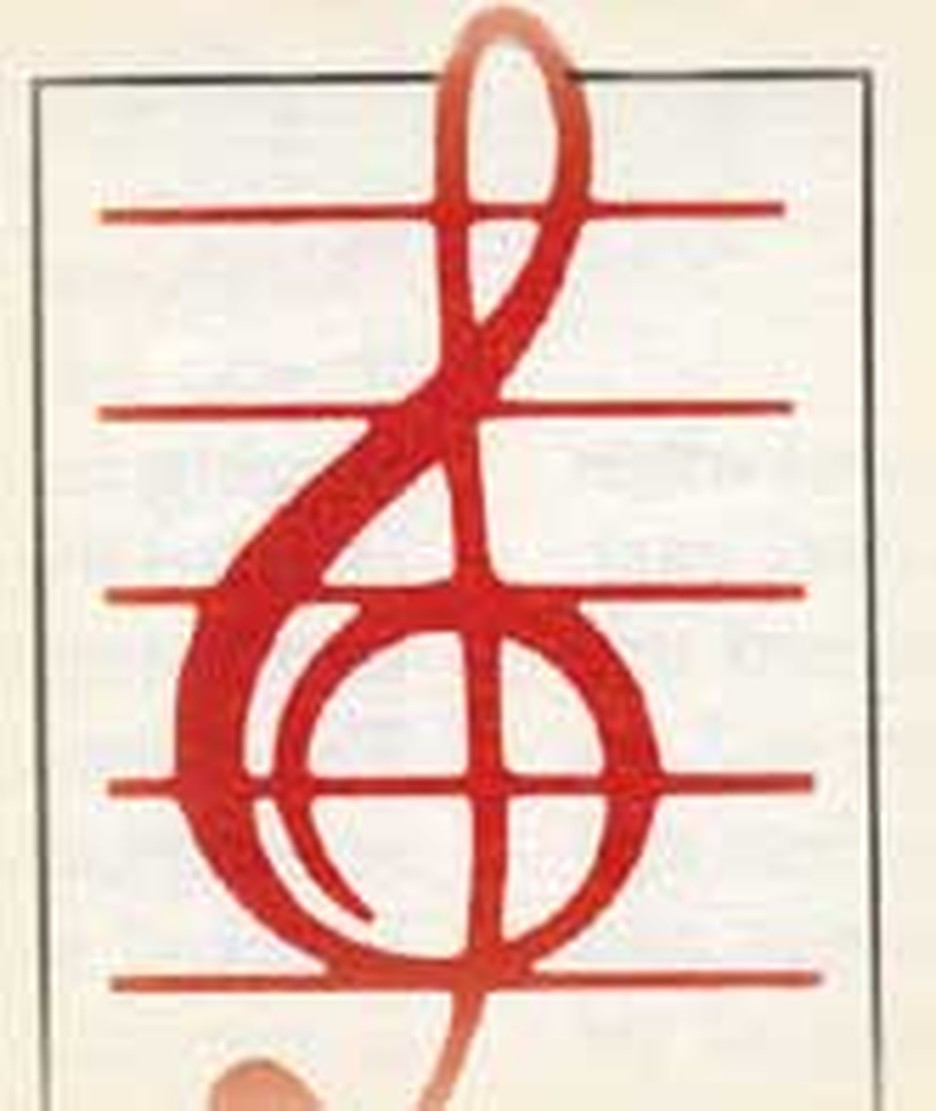
Questions: what is the longest book in the Bible? What is the one Bible book that consists entirely of songs or hymn-prayers to God? The answer to both questions is Psalms. Music is one of the priceless gifts God gave us. Music touches us as nothing else, reaching into our inner depths, giving us expression beyond the range of rational thought, offering us an instrument of praise to God and a manifestation of community as we sing together.
Music can soothe troubled hearts, as David's therapeutic ministry to King Saul showed so long ago (1 Sam. 16). African-Americans and Jews are especially aware of how songs to God have historically provided their people solace, dignity, strength and hope in the midst of humiliating servitude.
One of the few specifics God has entrusted to us about heaven is that it will be filled with song. The next six issues of Glimpses are devoted to music in Christian history.
From the church's earliest days, singing "psalms, hymns, and spiritual songs" with thankfulness to God has been an important part of Christian worship. Several of Paul's epistles contain fragments of hymns from the first generation of Christians (Philippians 2:6-11; I Timothy 3:16; Ephesians 5:14; Colossians 1:15-20); all are Christ-centered and brief, powerful proclamations of the early church's faith.
Songs in the Night
In one of the earliest extra-Biblical descriptions of Christians, about
112 A. D., the Roman Pliny wrote to the emperor Trajan that these believers
"were in the habit of meeting on a certain fixed day before it was
light, when they sang an anthem to Christ as God, and bound themselves
by a solemn oath not to commit any wicked deed . . . "
Scripture Songs
The early Christians often adopted Scriptures for songs--such as the song
celebrating the crossing of the Red Sea (Exodus 15:1-18), the song of
Moses (Deut. 32:1-43), and Mary's song of praise (Luke 1:46-55). Nine
such scriptural songs are Odes or Canticles important in Greek Orthodox
worship to this day.
What about Instruments?
Besides their use in Sunday worship, the early Christians also used hymns
at weddings and funerals. Some church fathers recommended that religious
songs replace instruments and secular songs in the home. Because musical
instruments were used in pagan sacrifices and the Jewish temple worship,
some Christians would not use them in public worship; they said musical
instruments were part of the "childish" worship in the earlier
state of God's people (a view later adopted by John Calvin). Some even
opposed their use in private life as well. Much later, somewhere between
the seventh and the tenth centuries, the organ was accepted into the church's
worship, moving from the court ceremony of the emperor (along with the
ceremonial use of candles and incense).
Battle of the Bands
Music has the power to reach the soul when a sermon might simply fall
on deaf ears. Some of the church's heretics realized this more than the
orthodox Christians did. In the 4th century, Arius believed the Son was
a creature of the Father; his writings and beliefs were condemned as heretical
by several church councils. Arius wrote songs popularizing his ideas with
the common people. Since church buildings were forbidden to them in the
capital city of Constantinople, on worship and festival days the Arians
would meet in public places, singing their songs antiphonally all night
long. The tunes were catchy, and soon everyone was singing the songs,
whether they believed Arius' doctrines or not.
The church father Chrysostom feared this would bring people away from the truth, so he organized, with the sponsorship of Empress Eudoxia, nightly processions and hymn singing with silver crosses, candles, and pageantry. At times there were riots and bloodshed when the two sides met. The "Battle of the Bands" was an early church example of the power of music to influence a people's spiritual direction.
A Long Interlude
The sixth-century pope Gregory I implemented musical reforms in the Roman
church which were to influence the western church for the next millennium.
The "Gregorian chant" or plainsong was characterized by a lack
of harmony or polyphony; there was only the melodic line. There were no
strict time values, and no musical instruments were used. The effect produced
had a resonant, mystical, other-worldly quality. Only men were allowed
to sing; this was music for the priests and the choir, not the congregation.
"Nothing on Earth More Mighty"
It was left to the Reformation to restore singing to the people of the
church. John Hus led the way and issued the first Protestant hymnbook
in the Bohemian language.
The Reformation hymns emphasized the worship of Christ rather than the medieval worship of Mary and replaced the chanting of priests and choirs in Latin with congregational singing in the language of the people. With the Reformation the congregational hymn was reborn, and it has continued as an important part of Protestant worship to our own day.
Luther's hymns |



